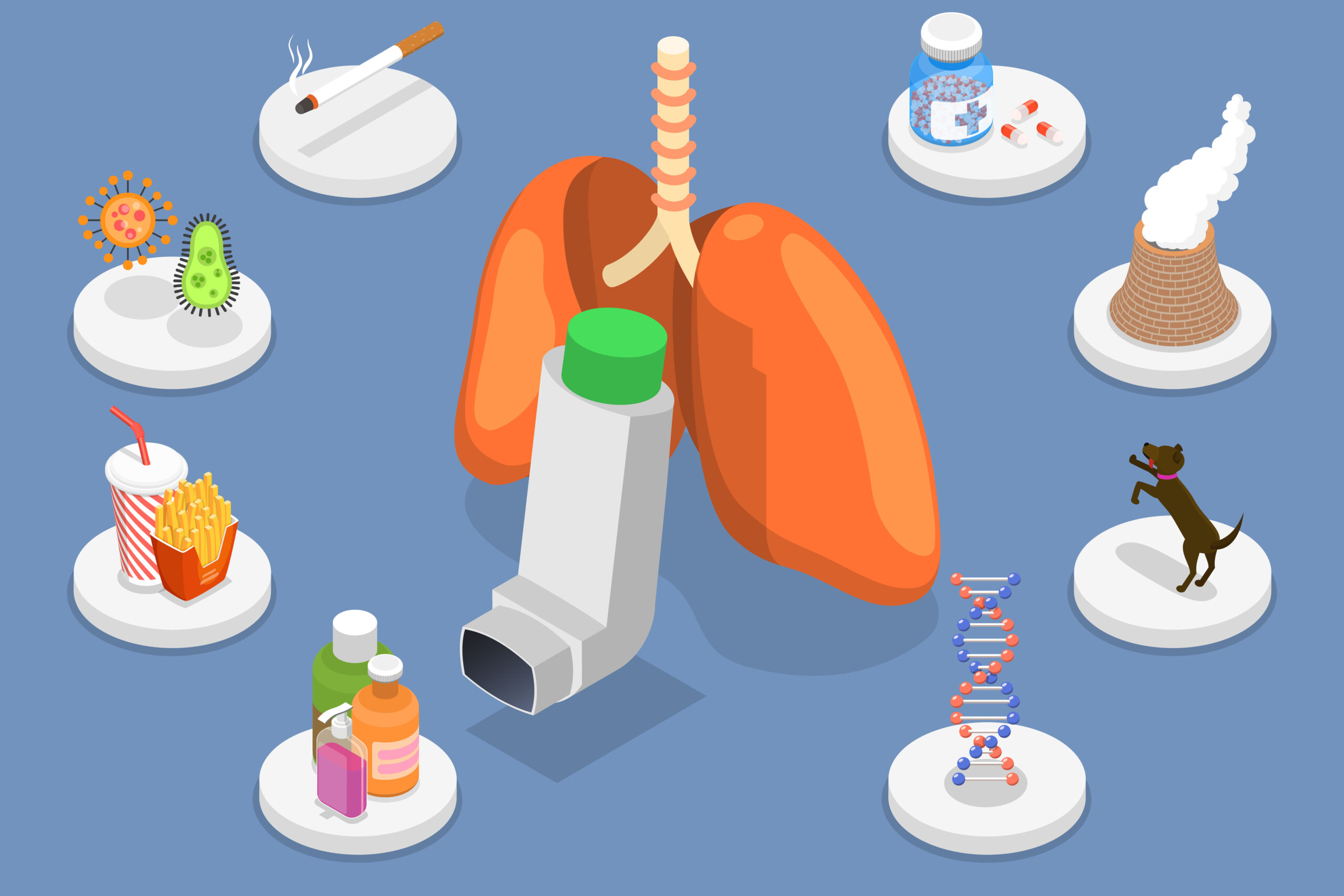
Here are 7 of the most common things that can cause asthma symptoms to flare.
If you have asthma, one of the best ways to better manage your condition is to steer clear of triggers that may cause you to have an asthma attack. It’s also important to be prepared to treat your asthma at any time, because you don’t always know when something will cause it to flare.
Not everyone has the same asthma triggers or reacts the same way to them, but these are some of the most common triggers. Knowing how you typically react in their presence, and then avoiding your triggers as much as possible, makes it less likely that you’ll have an asthma flare-up. Keep in mind that asthma symptoms may not always occur immediately after exposure to a trigger. In some cases, you may have a delayed response.
7 Common Asthma Triggers
-
- Allergies – One of the most common triggers of asthma is exposure to allergens. Whether you’re allergic to pollen and mold or dust and pet dander, anything that triggers your allergies may also cause you to have asthma symptoms, such as wheezing, coughing, trouble breathing, shortness of breath and chest tightness. Watch the video included in this article for tips on avoiding spring allergens.
- Air pollution/irritants – What you breathe in from the air is another common asthma trigger. Air pollution is one culprit, and one that you likely have little control over (other than staying indoors on days when there’s a lot of smog or high ozone levels). Your asthma may also be triggered if you’re around people who are smoking or you’re near a wood fire or charcoal grill. Strong smells in the air also commonly trigger asthma, including fumes from paint, gasoline, cleaners, chemicals, perfumes or scented products.
- Exercise/physical activity – Any activity that makes you breathe harder can affect your asthma, but it’s best not to avoid all activity because you have the condition. In fact, getting regular physical activity is not only good for your general health, but can improve your asthma. You may have to adjust your asthma treatment before or after activity or vary the type and intensity of the activity, so talk to your healthcare provider if your asthma is triggered by exercise.
- Weather – Dry cold air has been known to bring on asthma attacks. Some people experience breathing difficulty if it is very warm and humid. Sudden changes in temperature or weather conditions may also be a trigger.
- Respiratory illnesses – If you have any type of respiratory illness or infection, from the common cold to the flu or Covid, it can irritate your airways and trigger asthma symptoms. It is best to treat any illnesses you have as quickly and effectively as possible and to be prepared in case your asthma flares.
- Medications – If you take certain medications and find that your asthma is more difficult to control, talk to your doctor. Some medicines which may trigger symptoms include beta blockers, aspirin and nonsteroidal anti-inflammatory drugs (NSAIDs).
- Strong emotions – It may not seem like your feelings can affect a condition as complex as asthma, but they can. If you are experiencing strong emotions, whether you’re angry, scared, excited, surprised, happy or sad, it can cause changes in your breathing. Any time changes occur in how you breathe, it may trigger symptoms in someone with asthma.
Copyright 2024 © Baldwin Publishing, Inc. Health eCooks® is a registered trademark of Baldwin Publishing, Inc. Cook eKitchen™ is a designated trademark of Baldwin Publishing, Inc. Any duplication or distribution of the information contained herein without the express approval of Baldwin Publishing, Inc. is strictly prohibited.
Date Last Reviewed: March 15, 2024
Editorial Review: Andrea Cohen, Editorial Director, Baldwin Publishing, Inc. Contact Editor
Medical Review: Perry Pitkow, MD
Learn more about Baldwin Publishing Inc. editorial policy, privacy policy, ADA compliance and sponsorship policy.
No information provided by Baldwin Publishing, Inc. in any article is a substitute for medical advice or treatment for any medical condition. Baldwin Publishing, Inc. strongly suggests that you use this information in consultation with your doctor or other health professional. Use or viewing of any Baldwin Publishing, Inc. article signifies your understanding and agreement to the disclaimer and acceptance of these terms of use.